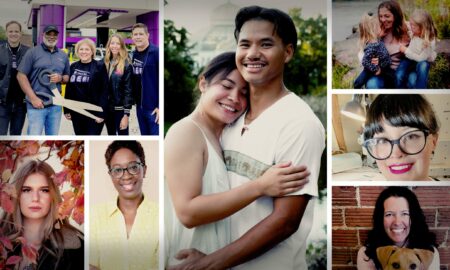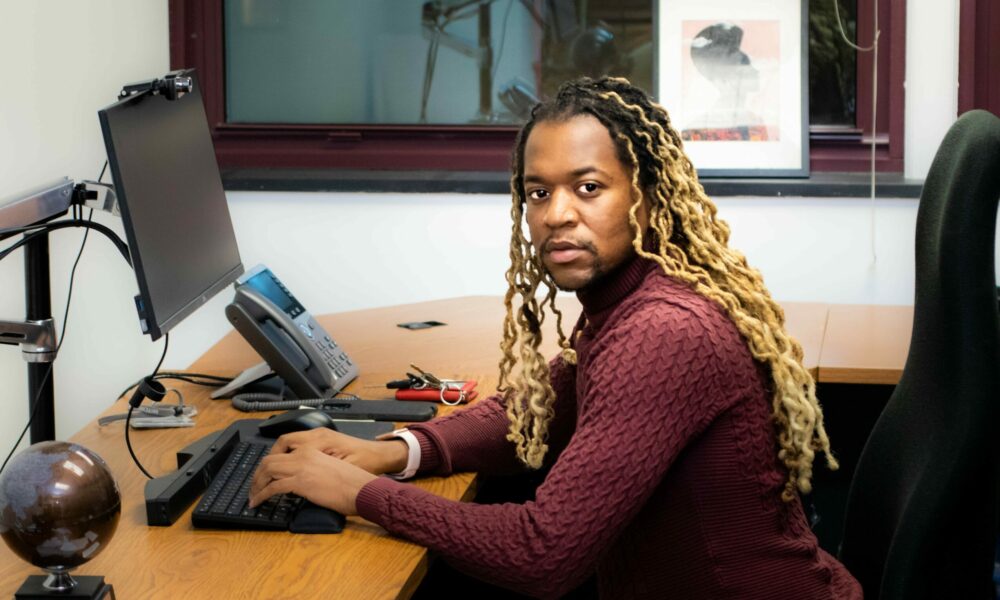

Today we’d like to introduce you to Dr. Anansi Wilson.
Hi Dr. Wilson, can you start by introducing yourself? We’d love to learn more about how you got to where you are today?
There is a long story and there is a short story to tell, so I’ll attempt to strike a balance. Most importantly, I’m a product of the scores of striving ancestors, Black folks through space and time, who have attempted to make this nation live up to the values it has long purported to have. I’m the child of strong, determined women who inspired–or required–me to carry dignity and self-assuredness in spades. I grew up in deep poverty, partly in rural Kansas and in Kansas City, raised by a single, disabled mother of four and my grandmother. My grandmother–and great grandmother–were stern, no-nonsense yet loving women who were students and participants in Black and American history. I read more books in elementary school than most doctoral students do in the entirety of their programs. Later, I moved to Boston to attend Tufts on a full scholarship, taught high school world history in Miami, attended Howard Law on a merit scholarship and then UT Austin on a recruitment scholarship for my PhD. Throughout this time I was always curious about, and uniquely focused on, the way the law orders and disorders Black living and dying; “from the womb to the tomb.” I was an early participant and organizer in the Occupy Movement, as well as the movement for Black lives.
I’m sure you wouldn’t say it’s been obstacle free, but so far would you say the journey has been a fairly smooth road?
From stomaches rumbling with hunger, to having no true guide to get elsewhere, there is nothing smooth or easy about growing poor or being a first generation high school graduate. Throughout my myriad accomplishments, I constantly struggled with basic necessities and then, with the question that would come to define my early work, “how can folks work this hard and still not have the opportunity to enjoy life?” In other words, I became my own case study on the ways in which meritocracy fails as a salve to racism and racial capitalism in America, particularly when enmeshed in queerness and interpersonal biases. This required me to sustain myself with not only the classic and enriching writings and art of Black thinkers like Baldwin, Angelou, DuBois, Morrison and Hemphill but also with the joy of Black everyday Black folks, pulling freedom and regard out of thin air, to make the life they had enough for the moment. It was especially difficult being a BlaQueer–Black & Queer–individual because the few models or images of Black success were not queer and few models of Queer success were studiously antiBlack; with neither having familiarity with deep poverty or midwestern culture or life.
Thanks – so what else should our readers know about your work and what you’re currently focused on?
I’m an associate professor of law and the founding director of the forthcoming Center for the Study of Black Life and The Law at Mitchell Hamline School of law. I’m also an award-winning scholar of law, literary and cultural studies, a racial-justice consultant, and an author of creative nonfiction and poetry. My legal research is situated in legal philosophy, critical theory, political economy, and constitutional law. While my writing and scholarship primarily focus on the history of Black thought, art, and imagination crafted in response to, and resistance against, the social, political, and legal realities of domination in the West. I seek to understand the processes of retrenchment after moments of social progress, and how freedom dreams are nevertheless sustained. My work analyzes the ever-changing relationships between race, law, sexuality, power, and citizenship; both in the construction of law and policy and the maintenance of the way we live our lives. I’m particularly concerned with Fourth, 13th, 14th, and 15th amendment questions. I also teach in the areas of criminal law, criminal procedure, constitutional law, federal criminal civil rights, Fourth, 13th and 14th amendment law, Reconstruction, political and civil rights, critical race studies, LGBTQ issues, and all areas pertaining to race, law, and society.
I employ Critical Race, Black Feminist, Performance and Women & Gender Studies and legal methodologies to examine how instances and (extra) legal precedents of anti-Black violence and racial-sexual terror continue to frame and impact notions of Black being and citizenship. Professor Wilson employs a multidisciplinary gaze to engage the creative, the legal, and the literary to uncover an emerging approach to encountering, understanding, and extrapolating anti-Blackness as a jurisprudential logic, underpinning, and precedent embedded in the Constitution, the Federalist Papers, and decisions they inform.
Alright so before we go can you talk to us a bit about how people can work with you, collaborate with you or support you?
Folks can reach out to me via my Mitchell Hamline email, but most urgently, they can donate the Center for The Study of Black Life and The Law here: https://mitchellhamline.edu/black-life-and-law/support-the-center-for-the-study-of-black-life-and-the-law/.
I’m also available for keynotes, lectures and workshops.
Contact Info:
- Email: [email protected]
- Website: http://anansiwilsonphd.com/bookings
- Twitter: @blaqueerflow
- Other: https://mitchellhamline.edu/black-life-and-law/
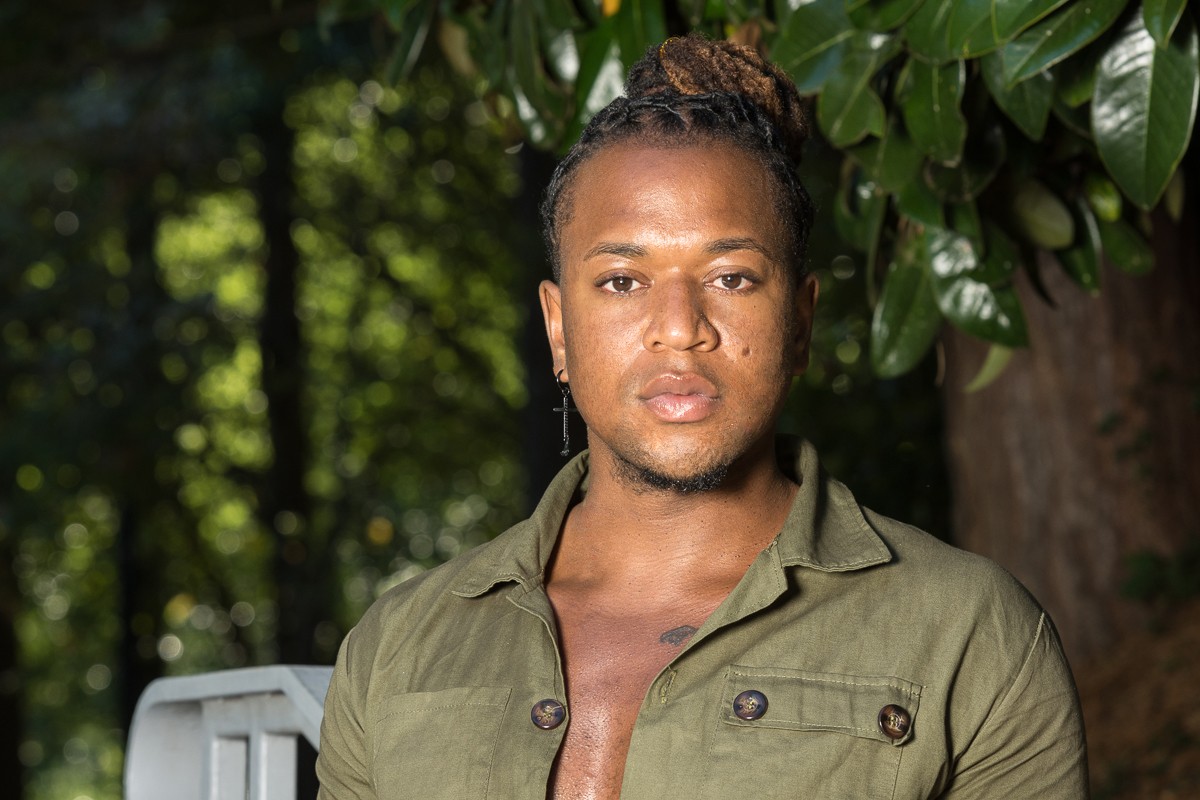
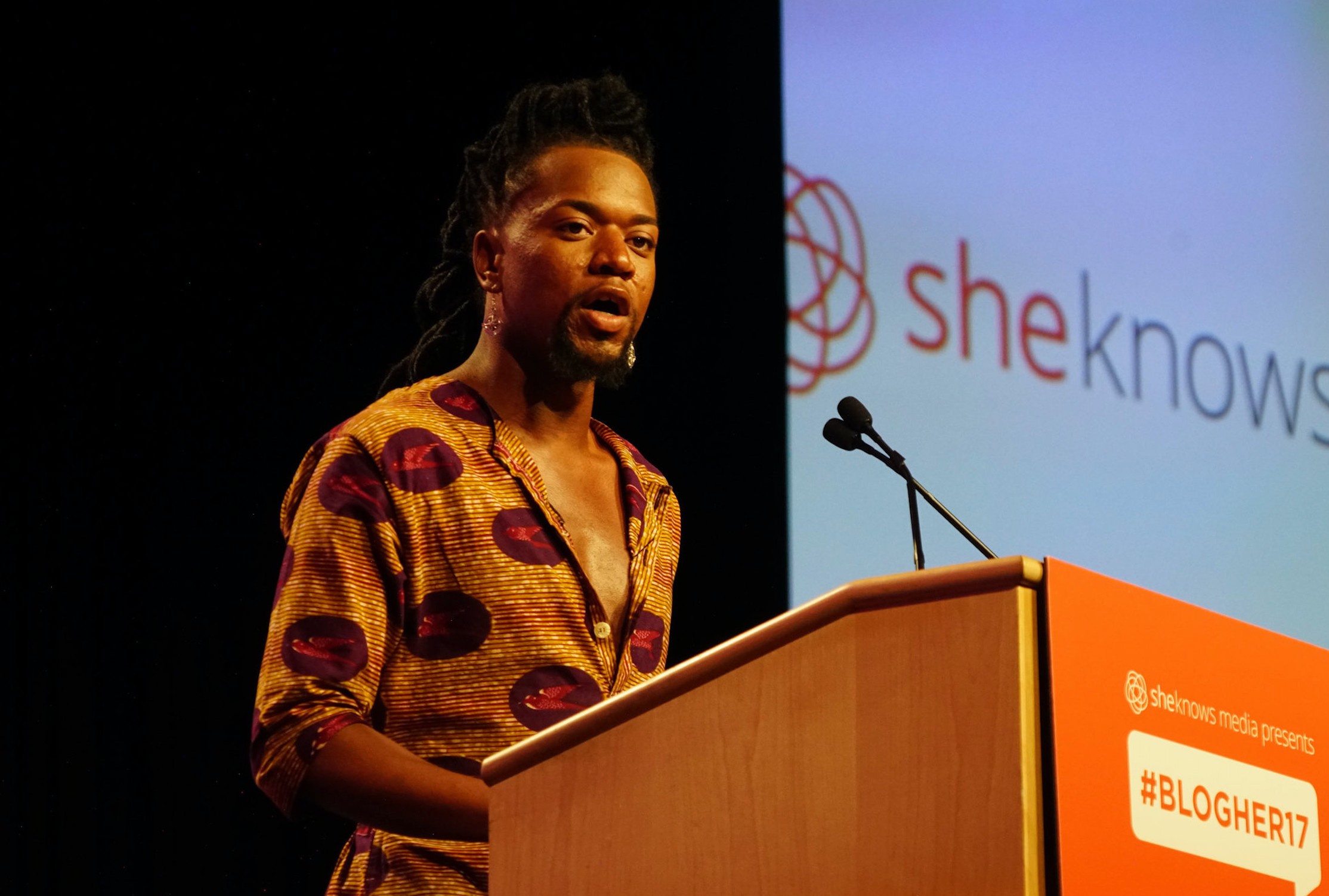
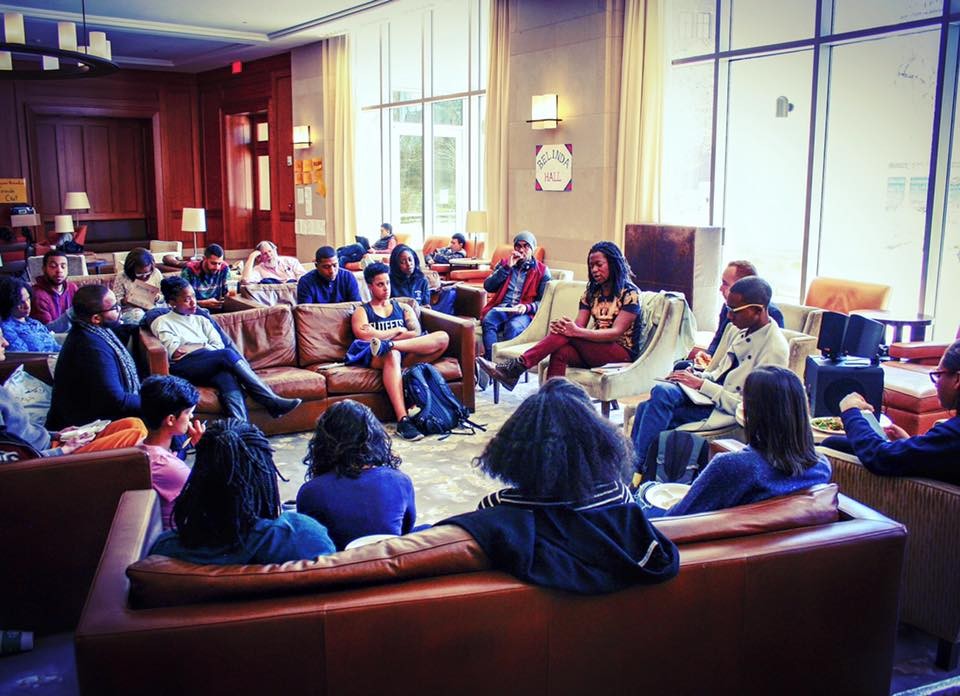
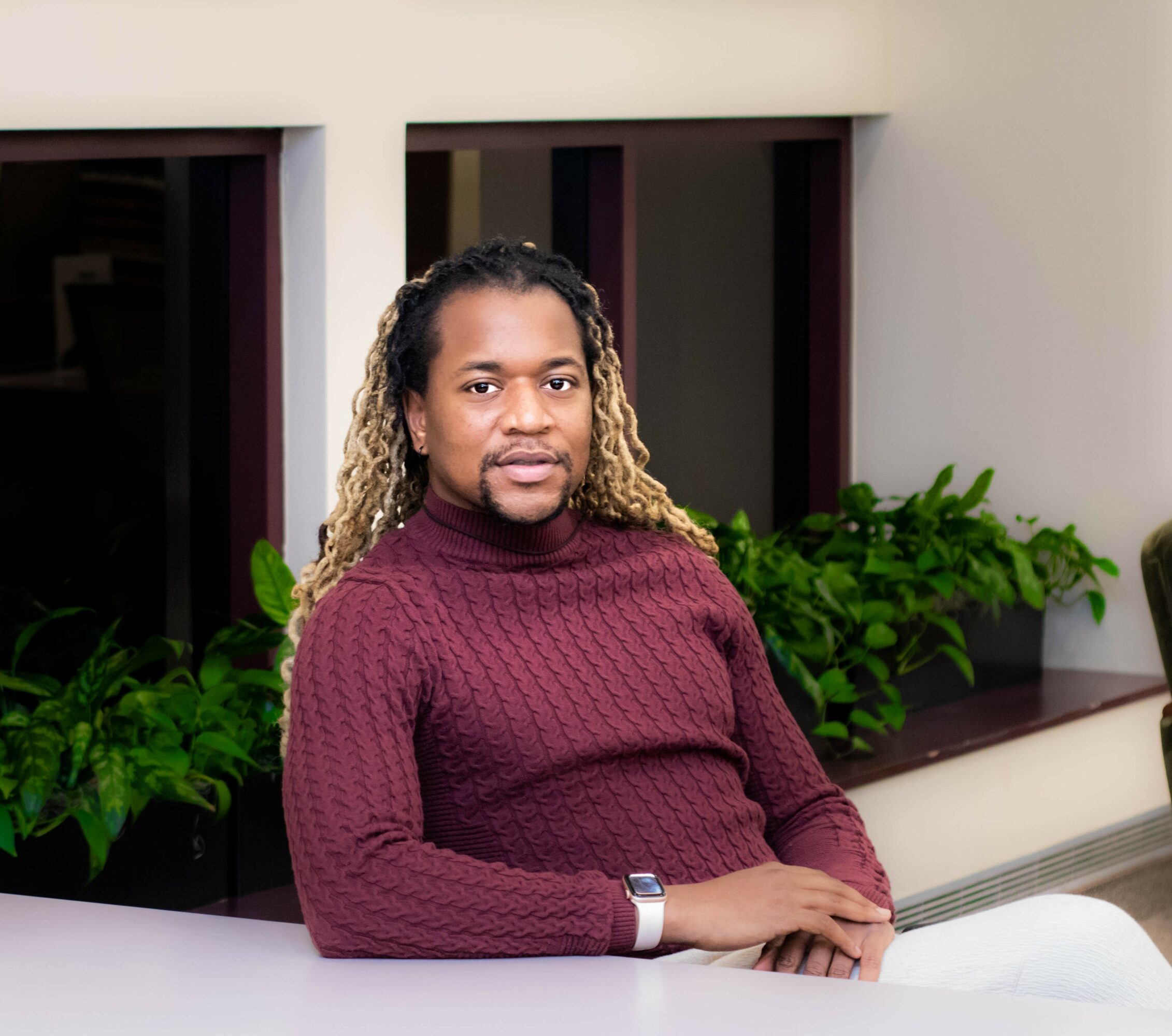
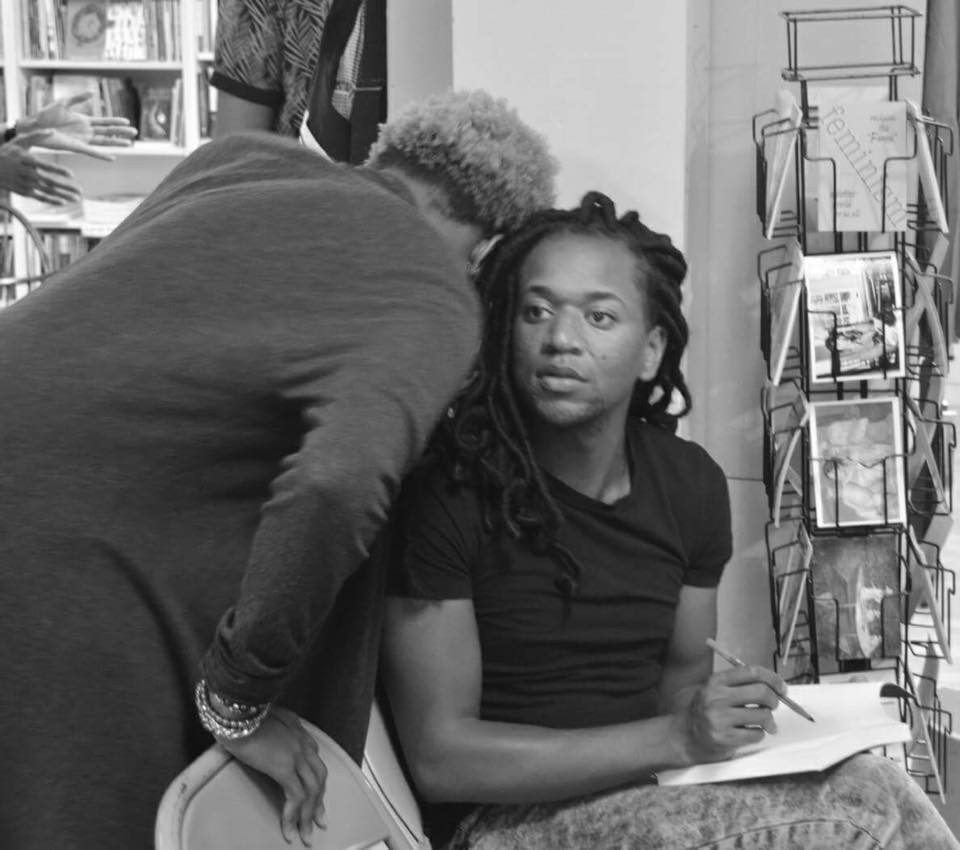
Image Credits
Kollin Benson Photography (profile photo and first photo on second page)

